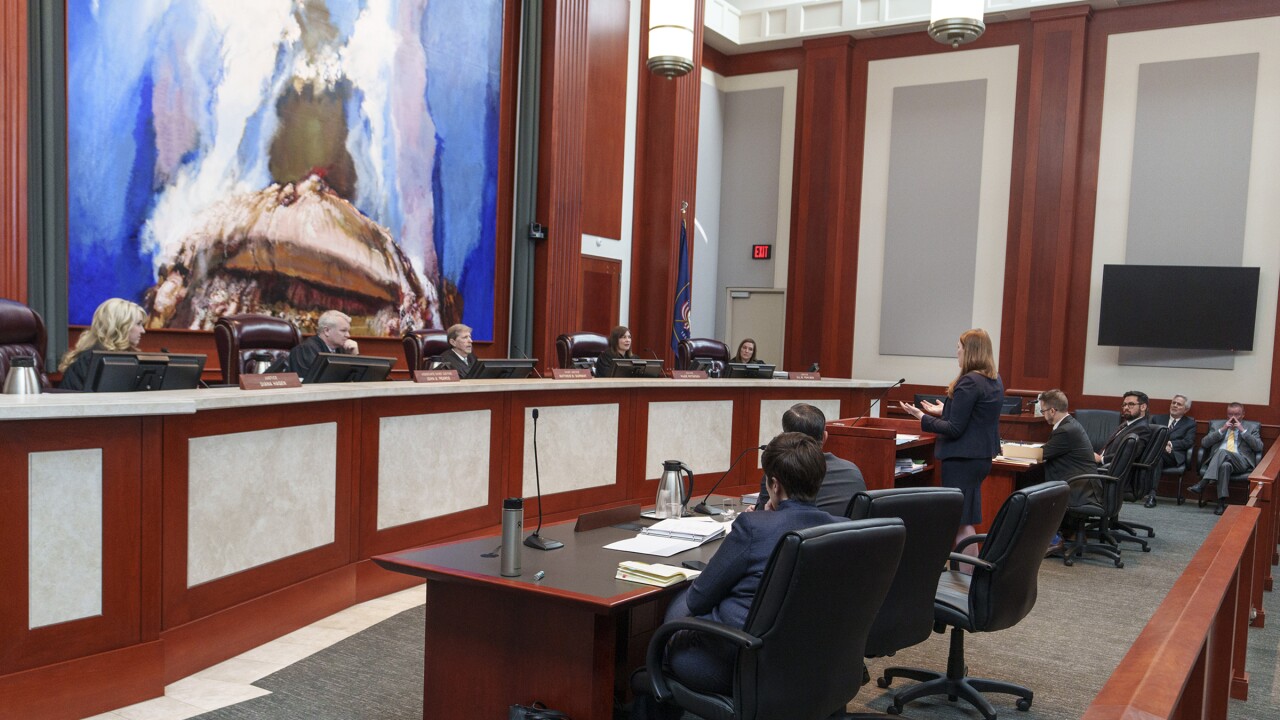SALT LAKE CITY — In its expected appeal, lawyers for the Utah State Legislature have asked the state's top court to halt efforts to draw new congressional maps.
The formal appeal of Judge Dianna Gibson's ruling throwing out the legislature-approved congressional district maps was filed late Friday with the Utah Supreme Court. It raises a number of issues including election deadlines, compliance with Judge Gibson's order and what relief the plaintiffs in the case really want.
"The people of Utah can have new congressional maps in place for the 2026 congressional elections. Or they can have new congressional maps resulting from a process that follows all of Proposition 4, which the district court has concluded now governs redistricting in Utah. But given the election calendar, Utahns cannot have both," Tyler Green, an attorney representing the legislature said in the appeal, obtained by FOX 13 News.
Lt. Governor Deidre Henderson has given a Nov. 10 deadline to have maps in place so counties can be ready for the 2026 elections. But drawing maps that comply with voter-approved Proposition 4 will take longer than that, Green wrote.
"Thus forced to choose, Plaintiffs sacrificed Proposition 4’s means for their preferred ends. To them, having new maps for the 2026 congressional elections matters more than complying with all of Proposition 4. The district court agreed and effectively excised the Independent Redistricting Commission process. It ordered the Legislature to publish a new map for public comment by September 25. That improper exercise of equitable power evinces a mismatch between the district court’s merits conclusion and its remedy—and suggests that claims Plaintiffs have repeated about Proposition 4 since this lawsuit started constitute little more than window dressing. It warrants an order from this Court granting extraordinary relief," Green wrote.
The League of Women Voters of Utah and Mormon Women for Ethical Government sued the legislature, accusing it of overriding the will of voters who passed Prop. 4 back in 2018. That citizen ballot initiative created an independent redistricting commission which drew maps that the lawsuit alleges lawmakers ignored in favor of their own that carved up the state into a mix of urban and rural areas. The plaintiffs allege that was gerrymandering to favor Republicans.
Judge Gibson sided with the plaintiffs in her ruling, declaring that Prop. 4 is now law and threw out the legislature's congressional maps and set a strict series of deadlines for new ones.
"The Legislature is wrong. Prop 4 is clear: when a new map is drawn after a census, a commission is required; when a new map is drawn following a court order, no commission is required. The new map must follow Proposition 4's neutral redistricting criteria, and that is what the Court ordered. It's remarkable that the Legislature is now complaining that IT will be allowed to propose a remedial map," Katharine Biele, the president of the League of Women Voters of Utah and a plaintiff in the lawsuit, said in a text message to FOX 13 News.
Republican legislative leaders insist they have the sole constitutional authority to set redistricting boundaries. In the filing, the Utah State Legislature also says it "reserves all rights to seek further review from this Court or the U.S. Supreme Court after the remedial proceedings conclude."
"But for the district court’s order, the Legislature would not change the boundaries of the congressional districts in H.B. 2004. In other words, were the Legislature properly left to its constitutional prerogatives to redistrict, H.B. 2004 would remain the State’s congressional map," Green wrote. "Even so, under compulsion from the district court’s order, the Legislature intends to participate in the remedial proceed- ings and try to enact a replacement map using redistricting criteria it did not adopt while expressly reserving the right to further appellate review."
It is unclear if the Utah Supreme Court justices will take up the case again. The justices do have the option of refusing to hear it (but it is expected they will). The Court previously refused the legislature's demand to throw out the League and MWEG's lawsuit.
Read the Utah legislature's appeal here:




